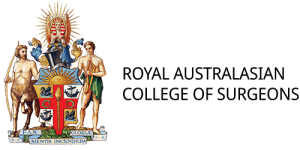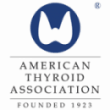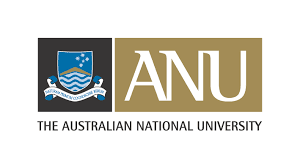TRANSORAL ROBOTIC SURGERY (TORS) PATIENT INFORMATION
Dr Ebrahimi was trained in Transoral Robotic Surgery (TORS) during his fellowship at the Mayo Clinic by leading surgeons who helped pioneered the technique internationally. He has years of clinical experience performing TORS and established the Transoral Robotic Surgery program at National Capital Private Hospital when he moved to Canberra in 2018. The program offers patients with throat cancer in the ACT and surrounding regions a minimally invasive surgical option. Ardalan is the only specialist Transoral Robotic Surgeon in Canberra.
The patient information below will help you learn more about the Transoral Robotic Surgery (TORS) for throat cancer, including what to expect before, during and after thyroidectomy, as well as answers to frequently asked questions.
Dr Ebrahimi’s approach to Transoral Robotic Surgery (TORS)
Given the potential benefits of TORS, it’s important that patients with tonsil and tongue base cancer who may be a candidate for the surgery be given the option of seeing a specialist for assessment to determine if TORS would be a good treatment choice for them. The best outcomes are obtained when patients are reviewed and discussed by a multidisciplinary team of specialists to tailor the treatment recommendations to the individual patient. Dr Ebrahimi takes a balanced approach when making treatment recommendations and will discuss the pros and cons of each option with you in detail to help you make informed decisions.
What is Transoral Robotic Surgery?
Tonsil and tongue base cancers (oropharyngeal cancer) are becoming more and more prevalent, particularly due to the human papillomavirus (HPV). Traditionally these cancers were treated with either invasive morbid surgery or high dose radiation with chemotherapy. Transoral robotic surgery (TORS) provides a minimally invasive surgical treatment of tonsil and tongue base cancer with the aim of curing the cancer but also minimizing the long term functional and quality of life side effects of treatment.
Transoral robotic surgery (TORS) is a minimally invasive surgical approach used to treat many tumours in the mouth and throat. It uses the state of the art da Vinci Surgical system, which consists of:
- A remote console operated by the surgeon. This provides a high-resolution magnified 3-dimensional view of the operative field
- A surgical cart positioned next to the patient delivers robotic arms and instruments that extend into the patient’s mouth, remotely controlled by the surgeon.
Use of the robot offers surgeons enhanced visualization, dexterity and freedom of movement, elimination of tremor and increased precision when operating. More importantly, in the head and neck region it offers a minimally invasive surgical option for selected patients with throat cancer. This means we can remove the cancer in a very precise way through the mouth and avoid traditional invasive surgery (using a mandibulotomy approach) which involves cutting the lip and jaw bone as well as nerves and muscles in the mouth and always requires a major reconstruction.
Which throat cancers can be treated with transoral robotic surgery?
TORS is currently used to remove several types of benign and cancerous growths in the head and neck region. Most commonly, TORS is used to treat cancers of the oropharynx, including tonsil cancer and base of tongue cancer. Occasionally we treat parapharyngeal tumours and other cancers in the throat or voice box.
Treatment decisions for tonsil and tongue base cancers can be complex; the size, location, and spread of the tumour have to be considered. Additionally access to the cancer through the mouth and your overall health are taken into account. Cancers of the oropharynx are often treated with radiation therapy and surgical approaches other than TORS. It is important that you are assessed in a Multidisciplinary Clinic including Head and Neck Surgeons, Radiation and Medical Oncologists. Allied health staff including nurses, dieticians, dentists and speech therapists will often be involved in your treatment and recovery also. Dr Ebrahimi is a member of the Head & Neck Cancer Multidisciplinary team at Canberra Hospital and works closely with experienced Head & Neck Radiation and Medical Oncologists to tailor treatment to the individual patient.
After diagnosis and staging investigations have been completed, the health care team will describe your treatment choices, the expected results of each and possible side effects. You should consider how treatment may affect eating, swallowing, talking and the way you look. This is also a good time to consider if you would like a second opinion. TORS isn’t suitable for all patients with cancer of the tonsil or tongue base, however, in properly selected patients it offers a minimally invasive surgical option that can then guide the need for any further treatment, if any, based on the pathology results. This allows a risk-adapted approach to the cancer. Surgery using TORS provides equivalent rates of cancer cure for throat cancer but may to better long-term quality of life and function when patients are appropriately selected for treatment.
Will I need any other treatment for my throat cancer?
This depends on the nature and extent of your cancer. In general, patients undergoing TORS also need a neck dissection as part of the surgery. This involves removing the lymph nodes from one or both sides of the neck. This can be performed simultaneously with TORS or in stages several weeks apart.
Head and neck cancers often require treatment with more than one form of therapy to reduce the risk of recurrence. It is not uncommon for patients to need radiotherapy after TORS, and sometimes also chemotherapy. Although these decisions are made largely based on the pathology results after surgery, Dr Ebrahimi will be able to discuss the likelihood of needing further treatment before surgery.
Will I have an anaesthetic?
Yes, TORS is performed under a general anaesthetic (you will be asleep and will not remember what happens during the procedure). You should have nothing to eat or drink for 6 hours before surgery (unless advised differently by your health care team) and should leave valuables and jewelry at home. The side effects of the anaesthetic may include nausea which settles down soon after surgery and can be treated with medications. General anaesthetic is extremely safe but does carry a very small risk of serious complications such as allergic reaction, heart attack, stroke or even death.
Will I have pain?
Every patient is different but in general the throat is quite sore after TORS and patients need strong pain relief medicine for several weeks as the raw surface where the cancer has been removed heals. The pain gradually completely subsides over a period of 4-6 weeks for most patients.
What can I expect during and after Transoral Robotic Surgery?
TORS alone usually takes 2-3 hours, depending on the complexity of your surgery. If neck dissection is performed at the same time, the operation will take several hours longer. Once you are asleep, Dr Ebrahimi will perform a careful examination of the tumour to plan the resection. A specially designed metal retractor is then placed into the mouth keeping it open and moving the tongue aside before the robotic camera and operating instruments are placed in the throat and the surgery begins. Since the front of the tongue is pushed out of the way during the procedure and compressed, most patients find the tongue is swollen straight after surgery and the nerves can be temporarily affected, causing reduced sensation, taste and movement. This improves after several days but can take up to two weeks. If there is a lot of swelling, a temporary breathing tube may be needed, which is placed through an incision in the neck (tracheostomy) but this is very rare.
Once you are fully awake, you will be moved to a bed in the intensive care unit. Many patients find it difficult to eat for a few weeks, especially if they have neck dissection together with TORS. Because of this, most patients have a feeding tube (nasogastric tube) that passes from the nose into the stomach to help maintain their nutrition in the first week after surgery. Usually you can start to drink liquids and progress to a puree diet within a week with gradual transition normal foods over the following six weeks. A speech therapist and dietician will usually be involved in your care. The speech therapists will assess your swallowing and teach you exercises to aid recovery. After TORS alone patients are usually well enough to go home within 2-4 days, whilst those having neck dissection at the same time usually need 7-10 days in hospital.
Walking can begin on the first postoperative day. Vigorous sports, such as swimming, and heavy lifting should be delayed for 4 weeks. In general, you should wait at least 2 weeks before driving again but this depends on your comfort levels. You should be able to return to a light job after 2-4 weeks and a heavy job by 4-6 weeks, but this varies based on the extent of surgery and the individual.
Will I have a scar?
No. Unlike traditional open surgery, TORS does not require a skin incision so there will be no scars on the face. However if you also require a neck dissection, you will have a scar on the neck, usually placed in a skin crease.
What are the advantages of Transoral Robotic Surgery?
The advantages and disadvantages of TORS depend on the specific details of your cancer as well as which other treatment options are available. When compared with traditional open surgery, TORS offers very significant benefits including:
- Shorter operating time, length of hospital stay and recovery
- Less blood loss, reduced post-operative pain and earlier return to normal eating
- Rarely needing a tracheostomy (a breathing tube that passes directly into the windpipe used routinely in the post-operative period after open surgery for oropharyngeal cancer)
- Not requiring a major flap reconstruction
- Better cosmetic results
- Better speech and swallowing outcomes
The advantages of TORS over primary radiation therapy are the subject of ongoing international research. Proponents of TORS believe it offers the ability to treat patients in a risk-adapted fashion based on pathology results after surgery, enabling the identification of patients at very low risk of recurrence that may be able to avoid additional treatment; maximizing the chances of good long-term swallowing and functional outcomes. Alternatively, if pathology results suggest a significant risk of cancer re-occurring, your treating team can recommend further treatment such as radiation therapy and sometimes chemotherapy for more aggressive cancers. Many clinicians believe that in properly selected cases, TORS leads to better long term swallowing function even if patients require additional radiation ± chemotherapy. This may be due to less radiation being required but further study is needed.
What are the risks of Transoral Robotic Surgery (TORS)?
In the hands of an experienced Transoral Robotic Surgeon, TORS is safe, however any surgery carries risk, some of which are serious. Risks common to any surgery include infection, healing difficulties, and formation of blood clots in the legs or lungs. The specific risks of TORS depend on the size and location of the cancer, its relationship to important structures such as nerves and blood vessels, as well as previous surgery or radiation to the head and neck. The most important potential complications include:
Bleeding
Bleeding from the site of surgery in the throat occurs in about 5% of patients. Usually this is in the first few days after surgery but can occur up to two weeks later. Bleeding is usually mild and self-limiting but can be severe and life-threatening in rare cases. In these cases it is necessary to return to the operating theatre urgently to stop the bleeding. You should stay close to a major hospital in the first 2 weeks after surgery in case of bleeding problems. If you bleed or cough up blood clots at home, let Dr Ebrahimi know immediately and go to a hospital emergency department for assessment.
Speech Problems
Occasionally patients with tonsil cancer may experience a condition called “velopharyngeal insufficiency” after TORS. This can occur if a significant amount of the soft palate (which is next to the tonsil and helps separate the mouth from the nose) needs to be removed in the surgery. This results in “nasal” sounding speech and possibly some regurgitation of liquids (and even solids in severe cases) into the nose when swallowing. Although this is not uncommon immediately after surgery, this almost always gets better with time.
Surgery on the tongue base can affect speech permanently in a minority of patients if tongue movement is impaired.
Swallowing Problems
Early after TORS, most patients find swallowing very difficult. However, this improves significantly after a week or two to the point where they can eat enough to be discharged from hospital and maintain their nutrition at home. It takes several months for the cancer resection site in the throat to fully heal and for swelling to settle down and swallowing function rapidly improves during this time and for up to a year. There is a risk of long term swallowing dysfunction but most patients having TORS return to excellent swallowing function with time if they are properly selected for the procedure. Generally the more intense the cancer treatment the greater the likelihood of long term functional problems. In patients with throat cancer this depends on the extent of surgery required, whether they have post-operative radiotherapy and the dose and extent of treatment fields needed, and whether chemotherapy is administered. One of the key aims of TORS is to reduce the need for chemotherapy and radiation when possible.
Infection
The tonsil and tongue base have a good supply so infections are very uncommon. The main risk of infection occurs if there is a communication between the throat and the neck at the end of the procedure. This means that saliva can leak from the mouth into the neck and cause serious infection. This can usually be identified and repaired intra-operatively. Dr Ebrahimi routinely uses a muscle flap to reconstruct the area where the throat and neck may communicate to minimise the risk of leak.
Tooth Damage
Although great care is taken to protect the teeth, including the use of mouth guards, there is a small risk of damage to teeth during the procedure, especially if they are already loose or diseased.
Nerve Damage
Depending on the location and extent of the cancer, the lingual nerve (which gives feeling and taste to the tongue) can occasionally be at risk. However, permanent nerve damage is quite rare after TORS.
Tracheostomy
In very rare cases, a tracheostomy (breathing tube through a hole in the base of the neck) may be needed to help patients breathe during or after the surgery. In these cases, the tracheostomy is temporary and can be removed after swelling has gone down, usually within a week. After the tube is removed, the hole will usually heal by itself after a few weeks with simple dressings.
Will I be able to lead a normal life after TORS?
Yes. Once you recover from the effects of surgery, you will usually be able to doing anything that you could do prior to surgery. The long term swallowing function for patients undergoing TORS alone (without radiotherapy) is usually very good but may not return to normal. For patients that need additional treatment with radiation ± chemotherapy, swallowing function usually will not return to normal and some consistencies and types of food can be difficult to swallow. Each patient is different in how their body responds to cancer treatment and recovers but we will counsel you on the likely outcomes and range of possibilities before embarking on treatment.














